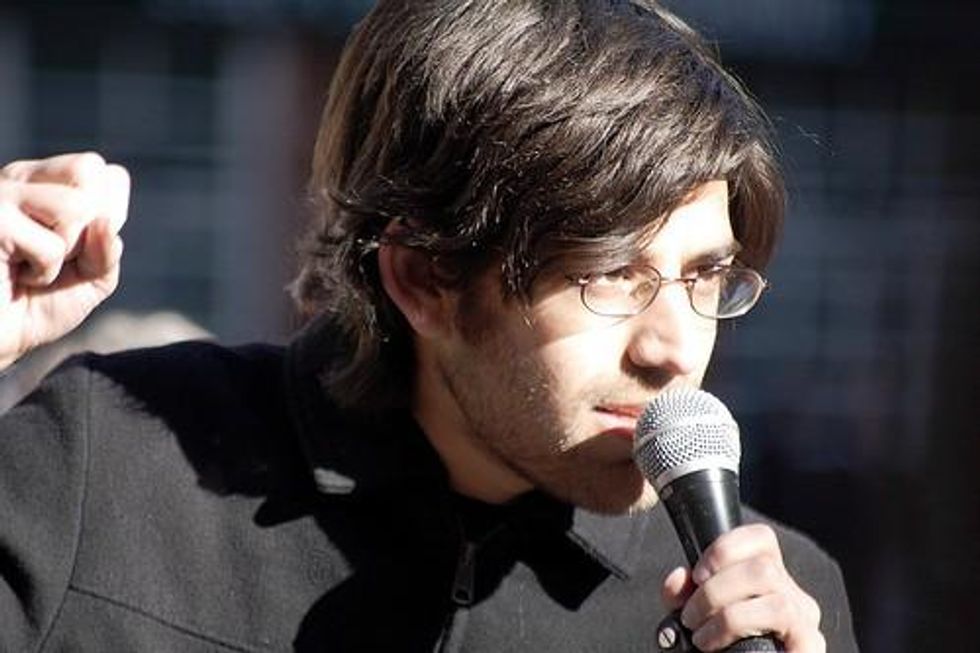An internal MIT investigation into the university's role in the prosecution of
Aaron Swartz, and culpability in his tragic suicide, has been slammed by loved ones of the deceased internet activist and programmer as a fluffy PR maneuver that falsely absolves the institution.
"MIT's behavior throughout the case was reprehensible, and this report is quite frankly a whitewash," declared Swartz's surviving partner Taren Stinebrickner-Kauffman in a statement released Tuesday.
MIT President L. Rafael Reif convened the report after the university fell under widespread condemnation for working with federal prosecutors to slam Swartz with severe charges, including a potential 35-year prison sentence, for allegedly using MIT computers to download 4 million academic journals from JSTOR--which he subsequently returned.
Swartz's loved ones and lawyer say MIT's participation in the overreaching prosecution played a role in driving the 26 year old to suicide in January and contributed to a chilling climate in which altruistic information-sharing is severely criminalized. This is despite MIT's purported commitment to "promoting open access to online information," a reputation that contributes to the institution's global prestige.
The report--chaired by MIT professor Hal Abelson who is active in the Creative Commons movement--concludes that the university is not responsible for Swartz's death and acted as a neutral party. The report does, however, state that the university's "hands-off attitude" constituted a poor demonstration of ethical leadership, concluding:
Looking back on the Aaron Swartz case, the world didn't see leadership. As one person involved in the decisions put it "MIT didn't do anything wrong; but we didn't do ourselves proud."
Yet, Swartz's loved ones say the university was anything but hands-off, working directly to aid the prosecution, cripple the defense, and obstruct justice for Swartz--actions that continue to the present-day. Stinebrickner-Kauffman states:
Here are the facts: This report claims that MIT was "neutral" -- but MIT's lawyers gave prosecutors total access to witnesses and evidence, while refusing access to Aaron's lawyers to the exact same witnesses and evidence. That's not neutral. The fact is that all MIT had to do was say publicly, "We don't want this prosecution to go forward" - and Steve Heymann and Carmen Ortiz would have had no case. We have an institution to contrast MIT with - JSTOR, who came out immediately and publicly against the prosecution. Aaron would be alive today if MIT had acted as JSTOR did. MIT had a moral imperative to do so.
And even now, MIT is still stonewalling. Wired reporter Kevin Poulsen FOIA'd the Secret Service's files on Aaron's case, and judge ordered them to be released. The only reason they haven't been is because MIT has filed an objection. If MIT is at all serious about implementing any reforms to stop this kind of tragedy from happening again, it must stop objecting to the release of information about the case."
_____________________




